NewsBeat
Axel Rudakubana stopped by father week before Southport attack
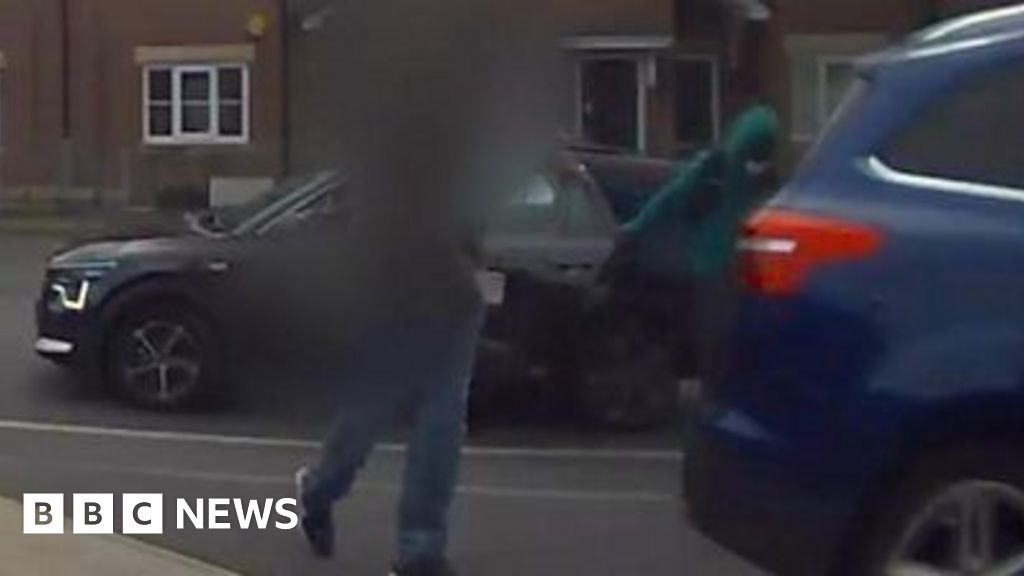
Doorbell footage captured the moment Axel Rudakubana’s father ordered him out of a taxi the week before his murderous attacks in Southport.
Merseyside Police said Rudakubana had intended to travel to a school and his father stopped him over concerns he had about his son’s behviour.
A week later, the then-17-year-old murdered three girls and tried to murder eight more children and two adults at a Taylor Swift-themed dance class.
After admitting three murders and ten attempted murders, he was jailed for 52 years at Liverpool Crown Court.
NewsBeat
Belarusian opposition denounces Lukashenko and Sunday’s election

BBC Eastern Europe correspondent
 European Pressphoto Agency
European Pressphoto AgencySvetlana Tikhanovskaya refuses to call what’s happening this weekend in Belarus an election.
“It’s a sham,” the exiled opposition leader says. “This is a military-style operation; a performance staged by the regime to hold on to power.”
For three decades, the country has been led by an increasingly authoritarian Alexander Lukashenko, now firmly backed by Vladimir Putin who makes use of his neighbour in his full-scale invasion of Ukraine.
This Sunday, Belarusians will see Lukashenko’s name on the ballot paper once again, with four other names chosen carefully to be no challenge.
No independent observers are allowed.

The tight controls have bene put in place because last time Belarusians voted for a president, the country was swept by giant protests.
In 2020, Alexander Lukashenko allowed Svetlana Tikhanovskaya to run against him, thinking that a political novice – and a woman – would make no impact.
It was a massive miscalculation.
Tikhanovskaya, who decided to stand in place of her husband after Lukashenko put him in jail, claimed victory.
When Lukashenko was awarded 80% of the vote, crowds took to the streets in the biggest ever threat to Lukashenko’s rule. The protests were ultimately crushed by riot police with mass arrests and brute force.
The European Union then refused to recognise Lukashenko’s legitimacy as president.
Today, all the key opposition figures from the period are in prison or have fled abroad, like Tikhanovskaya. Former protesters still in Belarus have been scared into silence.
So the opposition leader is not urging them to take to the streets again on Sunday.
“We call on Belarusians to reject this sham and on the international community to reject the result,” she tells the BBC. “But I say to Belarusians, you have to keep safe until the real moment of possibility.
“Because people live in constant fear, and the regime is now intensifying the repression.”
 Handout
HandoutYou feel that fear straight away when you speak to Belarusians.
Many don’t want to talk publicly about politics at all. Others ask you to change their names, then choose their words carefully.
Some still inside Belarus chat only via encrypted messages which they delete immediately.
All say open political activism in the country has been extinguished.
Bysol, a non-profit organisation which helps evacuate those in danger, reports a surge in applications to around 30 or 40 requests a month.
Since 2020, the group has evacuated more than 1,500 people.
It also supports former political prisoners trying to rebuild life in exile after their release.
For Yana Zhuravleva, a vet, that’s been tough.
Prior to 2020 she was devoted to her work and not particularly politically active. But that summer she joined the giant crowds, hopeful of change.
She was later sentenced to three years for a “gross violation of public order”.
“We would get punished for everything,” she recalls of her time in prison.
She calculates that about 1 in 10 of the women were there because of the protests. Like them, Yana was added to the register of those “inclined to extremism and destructive activity”.
“You can’t go to the sports hall, your only letters are from relatives and you get fewer visiting rights. If you complain you always hear the same response: remember what you’re here for,” she tells me from Poland, where she moved after her recent release.
Yana admits it took “titanic” strength not to slide into deep depression.
“In prison, I barely cried. But when I was out, I suddenly wanted to sob all the time, and didn’t know why.”
 European Photopress Agency
European Photopress AgencySeveral people I contacted have mentioned seeking psychological help, after being interrogated, threatened or imprisoned.
They describe a security service that hunts down anyone with the loosest link to the opposition, then demands names from all those it detains.
The pressure has never let up.
One woman inside Belarus, who used to monitor human rights, tells me she’s had to stop attending court hearings because the authorities spotted her.
If they could prove any link to the banned human rights organisation Viasna, she could be charged as an “extremist”.
“I can do some specific acts of support, but I have to be careful,” she told me anonymously.
“You have a very strong sense of helplessness when you see all this injustice.”
Viasna currently lists 1,256 political prisoners in Belarus. Dozens were given amnesties recently, but they were soon replaced.
For those who do escape the pressure-cooker of Belarus, there is the added struggle of knowing they may not return for a long time.
That’s why Natalia, not her real name, decided to stay in Belarus even after she was detained twice for participating in the protests.
“You’re very vulnerable once you’re on the list of the ‘repressed’,” she explains.
“You can’t get work because you are on the police data base and the authorities always have an eye on you…”
For Natalia that meant being arrested again, initially for walking her dog without a lead.
“They claimed I’d been aggressive and cursed loudly and waved my arms,” she remembers, of her detention in 2023. She was held for ten days with up to 14 people in a cell for two, a light on constantly.
For over a week, she slept on the wooden floor.
“It really shook my sense of security, I became much more anxious,” Natalia confides.
She’s abroad for now and plans to return soon, to her cats. But her neighbours say a police officer just visited her house, checking up on all potential protesters ahead of Sunday’s vote.
 Reuters
ReutersSvetlana Tikhanovskaya believes the ongoing repression shows that Lukashenko and his allies are afraid.
“The trauma of 2020 is still alive and he has to eliminate any possibility of uprising,” the opposition leader argues.
“He knows the Belarusians didn’t accept or forgive him, and they still want change.”
But she admits there’s little sign of that in the short-term.
For a time after Russia’s full-scale invasion of Ukraine, Belarusians hoped their neighbours might succeed in defeating Putin with Western help, and that Lukashenko would follow him.
Some headed for the front line themselves, choosing force after their peaceful protests had failed.
But Ukraine’s military is now struggling to hold ground and President Donald Trump is pushing for peace talks.
“The democratic world can’t make concessions to Putin,” Tikhanovskaya argues, describing Lukashenko as equally dangerous to the world.
He let Russia launch missiles at Ukraine from Belarus and send its tanks through his territory.
He’s also allowed the free flow of migrants to the Polish border and into the EU.
“He allows Putin to deploy nuclear weapons and his army in Belarus, and it’s a very short path to Poland and Lithuania,” Tikhanovskaya points out.
“He and Putin are a pair, and they support other dictators. He’s part of this chain of evil.”
There is little doubt that Sunday’s reinstatement of Alexander Lukashenko will go according to his plan.
“Those people are very capable,” explains Yana, the former political prisoner.
“They really did crush the potential for protest.”
She’s now trying to return to her profession as a vet, but in Poland, and to recover from three tough years behind bars.
Those I spoke to now see Lukashenko retiring, or eventually dying, as their greatest hope of seeing democracy.
In the meantime, many are switching focus: there’s been a surge of interest in reviving the Belarusian culture and language, an opposition cause. It’s the most many dare do in such circumstances.
“No-one says it openly, but we feel like there are no prospects. There’s depression,” Natalia admits.
But there are no obvious regrets, even so.
Svetlana Tikhanovskaya’s own life has changed dramatically since she was thrust into politics.
Cut-off from her country, her husband is also a political prisoner – kept in total isolation for almost two years.
The opposition leader insists she still “truly believes” in change.
“2020 was a huge shift in mentality in Belarus. I don’t know how long it will take, but that shift will not disappear.”
NewsBeat
Could calling attacks like Southport terrorism help prevent them?
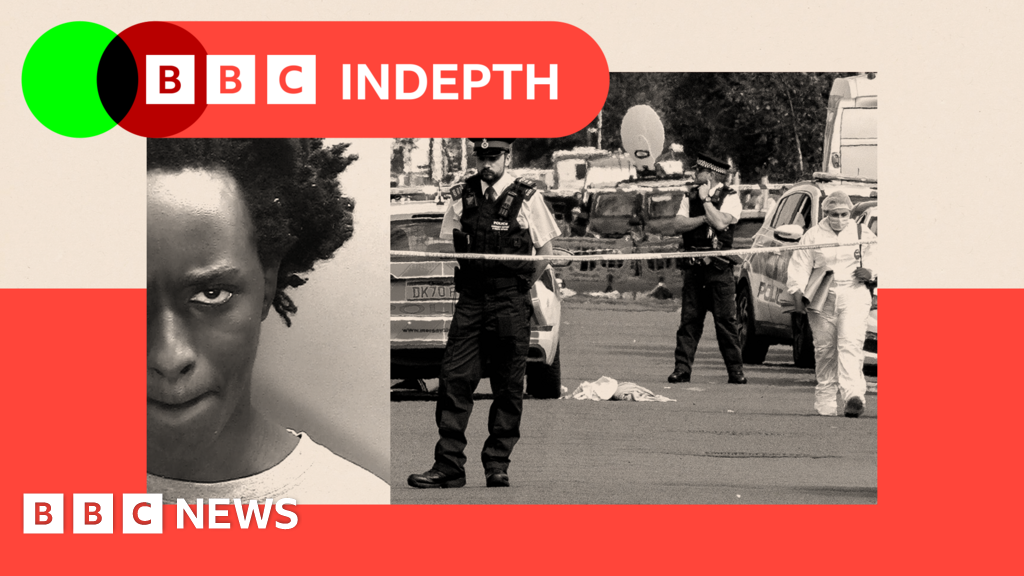

Investigations Correspondent
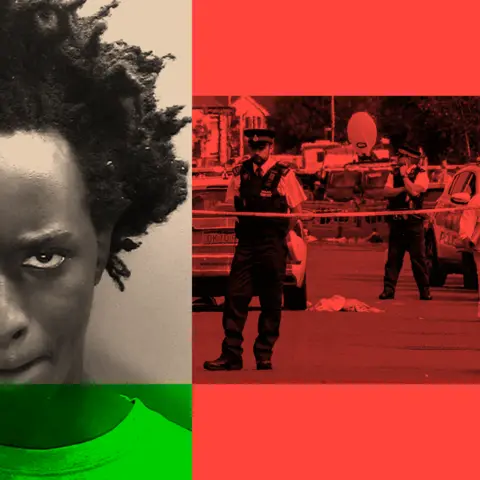 PA Media
PA MediaThe teenager who murdered three children, Elsie Dot Stancombe, Alice da Silva Aguiar, and Bebe King, at a Taylor Swift-themed dance class last July will serve a minimum of 52 years in prison.
Axel Rudakubana had a long-standing obsession with violence, killing and genocide, but prosecutors said there is no evidence he ascribed to any particular political or religious ideology.
He admitted a terrorism offence for downloading an al-Qaeda training manual. But the knife attack has not been treated as terrorism by police or prosecutors, and the judge stressed that he “must accept” that there was no evidence of terrorist cause.
He added, however, that Rudakubana’s culpability is “equivalent to terrorist matters, whatever its purpose”.
Following Rudakubana’s guilty pleas earlier this week, Prime Minister Sir Keir Starmer declared “terrorism has changed” and Britain is facing a “new threat”.
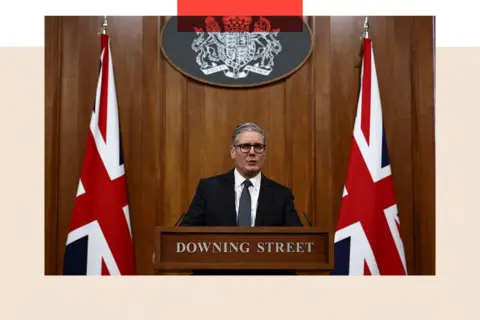 PA Media
PA MediaIn the past, he said, the main threat was organised groups like al-Qaeda, but that we now also face extreme violence from “loners, misfits, young men in their bedroom, accessing all manner of material online, desperate for notoriety”. They are sometimes inspired by traditional terrorist groups, he said, but are fixated on extreme violence, seemingly for its own sake.
But what the prime minister described has been happening for years.
“This is not a new threat,” says Barnaby Jameson KC, who has spent years prosecuting terror cases. “In the last decade we have seen a plethora of terrorist cases involving young males who have become self-radicalised in isolation online.”
What is new is that the prime minister has now indicated this problem must be urgently addressed.
The question now is how he will do it – and, if this has been going on for so many years, why has it taken until now to do so?
A ‘fluid’ counter-terror system
At present, the police, courts and MI5 work to a definition in the Terrorism Act 2000.
That defines terrorism as the use or threat of violence designed to influence the government, an international governmental organisation, or to intimidate the public or a section of it, with the use or threat of violence for the purpose of advancing a political, religious, racial or ideological cause.
Put simply, for an attack to be treated as terrorism the authorities must conclude it was for some kind of cause.
But various terror offences can be – and are – used to charge and disrupt people who are not defined by prosecutors as having a terrorist motive. On the flipside, it is also true that cases which some think should be classed as terrorism, are not.
 Children in Need / PA
Children in Need / PASeveral recent cases show how fluid the counter-terror system can be when presented with cases falling outside the main ideologies, showing these issues are not as new as the prime minister suggests.
Counter-terror police, with their particular focus on preventing violence in the first place, have investigated plots that are not defined as terrorism, including two teenagers jailed in 2018 for planning a school massacre in North Yorkshire.
Another investigation prevented a massacre in Cumbria the same year. The “loner” responsible was convicted of possessing terrorist manuals, but prosecutors said the motive was “not terrorism” and related to hatred and revenge.
 North East Counter Terrorism Unit
North East Counter Terrorism UnitIn 2021, a 16-year-old boy from Birmingham admitted three terror offences for possessing gun and bomb manuals. He had a general fascination with terrorism, violence and so-called ‘incels’.
From age 11, he had constantly posted in a forum about the Columbine massacre. The prosecution case was that he did not hold any fixed ideology.
On the other side of the spectrum, a vehicle attack in Westminster in 2018 – in which a man drove at cyclists and police officers outside Parliament – was prosecuted and sentenced as terrorist-linked, despite no evidence of any extremist motive, on the basis that the act and location meant the attacker must have been acting for a terrorist purpose.
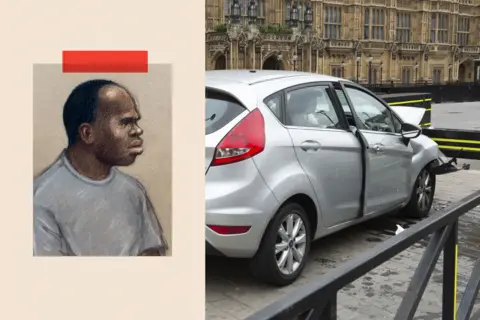 BBC/ Metropolitan Police
BBC/ Metropolitan PoliceThe case shows a motive does not need to be clear for a case to be treated as terrorism.
But a notorious double murder that was inspired by an extreme ideology – the stabbings of Bibaa Henry and Nicole Smallman in a London park in 2020 – were not defined as terrorism despite the killer clearly being motivated by his adherence to Satanism and the occult.
The case of the Liverpool hospital explosion
It is up to the police, namely the senior national co-ordinator for counterterrorism, to declare an incident as terrorism.
In the past, this has happened quickly in notorious cases, including after the Manchester Arena bombing and the Westminster Bridge attack. Both were carried out by known extremists.
One reason why police may now take longer before making a declaration – even an incident that may appear likely to be classed as terrorism – is because of an explosion in a taxi outside Liverpool Women’s Hospital in 2021, which was initially declared a terrorist incident.
After a long investigation, however, detectives eventually concluded there was no evidence the Liverpool bomber held extremist views of any kind and that his precise motive remained unknown, but it was likely driven by anger towards the British state for repeated rejections of his asylum claim and exacerbated by his own mental health struggles.
Despite such examples, the central focus for MI5 and police is terrorism as defined by the law, rather than a broader group of people presenting a more general risk of violence.
If the government is now going to ask that more time be devoted to this wider group, MI5 and the police may well ask for more resources.
 Getty Images
Getty ImagesAs things stand, both are currently devoting increasing time to investigating state espionage in the UK, particularly from Russia, Iran and China, which means they’re spending less time on terrorism investigations.
Within those investigations, detectives focused on the extreme right spend an increasing amount of time dealing with young people who engage in a range of harmful activity, including sexual offences.
Certain online spaces have seen a blending with the occult, Satanism, misogyny, and a general ultra-violent misanthropy, creating toxic new groups that bleed back into the real worlds.
Some of those involved are often mentally vulnerable, creating additional sensitivities around interventions, whether they involve criminal investigations or not.
Some neo-Nazi groups created by teenagers and young people online have been outlawed as terrorist organisations, joining a list that includes Hamas and the IRA.
From al-Qaeda to IS
The challenge of preventing lone attackers in the UK is nothing new. In the 1990s and early 2000s, the main threat was from elaborate plots directed by groups like al-Qaeda, such as the plan to blow up transatlantic planes using bombs disguised as drinks.
This era saw the creation of the main terrorism laws now in use, which defined a series of offences – including preparing acts of terrorism and possessing terrorist instructions – that we see in the courts, used to disrupt and stop people before they commit acts of violence.
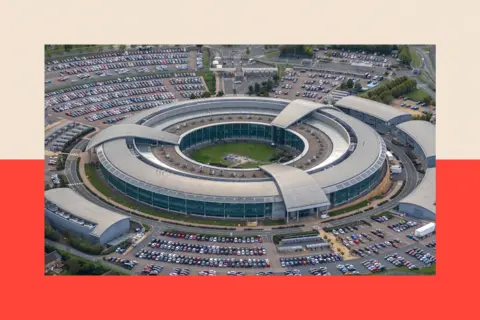 Getty Images
Getty ImagesBut with the emergence of the Islamic State (IS) group over a decade ago, the threat moved away from plots directed by organisations and towards acts of violence by individuals inspired by online propaganda and instructions from groups like IS, but who might have no direct contact with them.
In the decade since there have been multiple plots and attacks by lone actors, including people using knives and vehicles as weapons, making it harder to spot their plans because the preparations are relatively low-key.
Extreme right-wing violence, which has emerged as a major issue, has predominantly followed the same pattern: plots and attacks by lone actors, often very young, who are typically inspired by material accessed online.
The challenge of rooting outing lone attackers
For years, counter-terror police have been registering their concerns about this group. (Indeed, they are only a group because the authorities have defined them as such.)
The point is illustrated by the number of them referred to Prevent, the government-led counter-extremism programme. In the year to March 2020, 51% were for individuals with a “mixed, unstable or unclear ideology”, of which almost half had no concern identified following an initial assessment.
In the years since, the way in which that group is classed has changed, with newer categories for concerns about school massacre radicalisation and the misogynistic incel ideology, which makes direct comparisons over the years difficult.
However, the government’s own figures for 2023/2024 show the largest single group referred to Prevent – 36%, meaning 2,489 people – were defined as individuals with a vulnerability present but no ideology or counter terror risk, with 19% classed as extreme right-wing, 13% as Islamist radicalisation, and 2% relating to concerns regarding school massacres.
From these thousands of Prevent referrals, 7% were adopted as cases requiring intervention by a multi-agency panel. But the figures for interventions show how the largest group of original referrals – the mix of people with a general interest in violence but no clear ideology – get increasingly filtered out of the programme.
For cases involving intervention, 45% related to extreme right-wing radicalisation, 23% to Islamist radicalisation, 18% to individuals with “conflicted concerns”, and 4% for school massacre concerns.
The Southport attacker himself was referred to Prevent three times by “education providers” because of concern about his interest in violence and extremism, but each time officers assessed he did not need meet the threshold for intervention – assessments since found to be wrong by an official review.
A ‘dizzying range’ of beliefs
When you get to actual investigations by MI5, which is the UK’s lead agency for counter terrorism, the figures change again, with the organisation’s director general Ken McCallum saying last year that 75% relate to Islamist extremism and 25% to the extreme right.
However, he acknowledged that “straightforward labels like ‘Islamist terrorism’ or ‘extreme right wing’ don’t fully reflect the dizzying range of beliefs and ideologies we see,” and that MI5 is encountering more people accessing “both extreme right wing and Islamist extremist instructional material, along with other bits of online hatred, conspiracy theories and disinformation.”
 PA Media
PA MediaWhat the figures show is that a large group of people – about whom there are real concerns – neither end up in Prevent, nor being investigated by MI5 or counter-terror police.
The prime minister said this week it may be that such people are “harder to spot,” adding that we “can’t shrug our shoulders and accept that”.
But what his government is proposing to do about it is currently unclear.
New definitions: Would serial killers be included?
The government could consider broadening the definition of terrorism or creating new offences to tackle the threat of violence from non-terror offenders.
It could also change the way in which the threat of violence from non-terror suspects is monitored and managed.
Neil Basu, the Met’s former head of counter-terror policing, this week said that a “Prevent for non-terrorists” is now necessary and will require a “big bill” if we want to be safe.
The government has appointed Lord Anderson KC, a former independent reviewer of terrorism legislation, to review the Prevent scheme, although it was the subject of a highly critical review two years ago commissioned by the previous government.
Jonathan Hall KC, the current independent reviewer of terrorism legislation, has been asked by the government to consider whether the definition does need to change. Speaking to the BBC, he says: “There appear to be three reasons for expanding the definition of terrorism.
 PA Media
PA Media“The sense that only terrorism captures the horrors of attacks like the one by Rudakubana; because doing so brings in counter-terrorism powers; and because terror laws focus on pre-cursor offences and preventing attacks in the first place.
“However, to change the definition you would need to work out what violence to include, and what to exclude.
“If it was no longer necessary to prove a political, religious, racial or ideological cause, would the touchstone be methodology, or number of victims, or desire for notoriety or terrorising impact? Would serial killers like Lucy Letby be included or not?”
On the question of which resources are used to tackle the threat, he argues that “we must ask who is responsible for the risk posed by people like Rudakubana. This is about risk management and public protection by law enforcement, not welfare interventions.
“We can learn from how terrorist subjects of interest are managed by every mechanism available, such as non-terrorism prosecutions or use of civil orders.”
Now the Southport attacker has been sentenced, the focus will be on what the government next does to tackle the issues articulated by the prime minister.
Top picture credit: Merseyside Police and PA
BBC InDepth is the new home on the website and app for the best analysis and expertise from our top journalists. Under a distinctive new brand, we’ll bring you fresh perspectives that challenge assumptions, and deep reporting on the biggest issues to help you make sense of a complex world. And we’ll be showcasing thought-provoking content from across BBC Sounds and iPlayer too. We’re starting small but thinking big, and we want to know what you think – you can send us your feedback by clicking on the button below.
NewsBeat
Majority of Brits support cutting or abolishing inheritance tax, new poll shows, as farming backlash grows
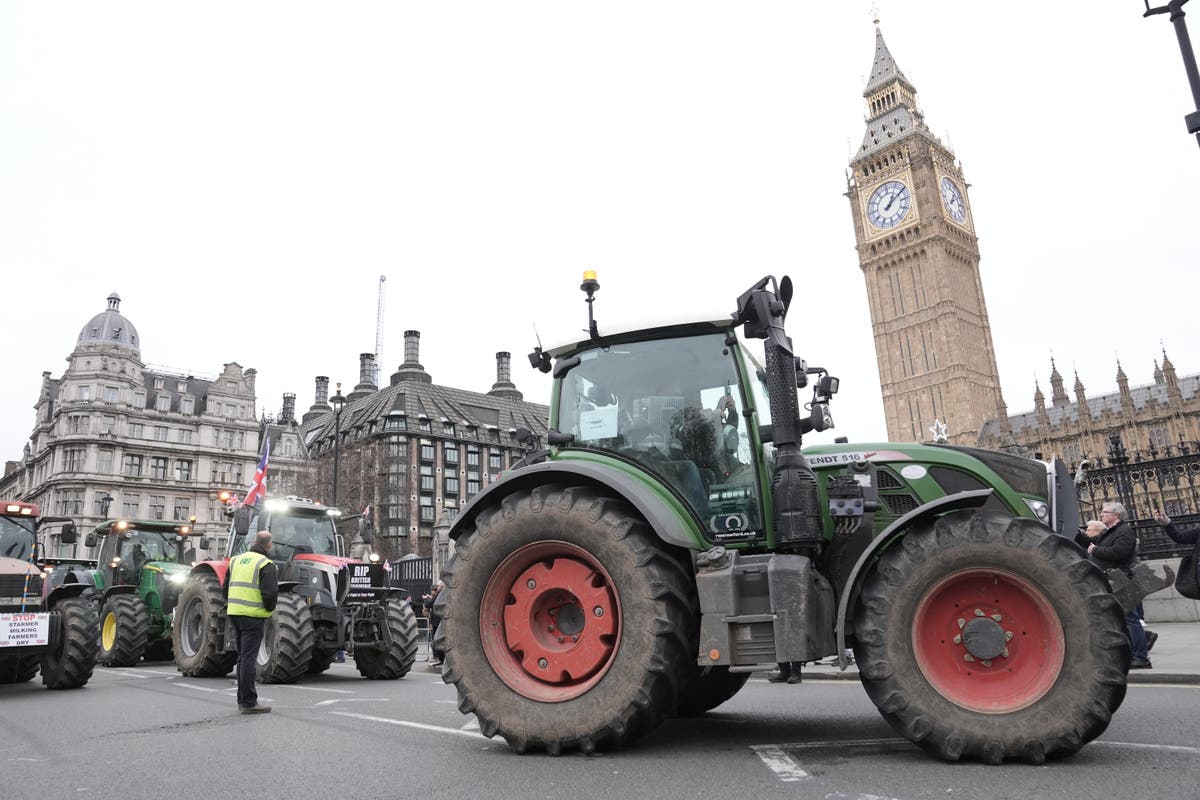
The British public are in favour of cutting or abolishing inheritance tax, a new poll has shown, as backlash over the government’s tax raid on family farms continues to grow.
Campaigners have said the survey should be a “reality check” for the government amid growing frustration over the decision to extend inheritance tax to agricultural properties.
The latest polling, conduced by Public First for the Taxpayers’ Alliance – a pressure group campaigning for a low-tax society – saw 55 per cent of people say they would support cutting or abolishing the tax, with almost half of respondents listing the tax as the most unfair out of a list of nine.

Asked “do you think the government should raise inheritance tax rates, cut inheritance tax rates, keep inheritance tax rates the same, or abolish inheritance tax all together?”, 27 per cent said it should be cut and 28 per cent said it should be abolished.
This compares to 21 per cent who say it should be kept the same and 10 per cent who said it should be increased.
Worryingly for Sir Keir Starmer, the figures were similar for 2024 Labour voters, with 48 per cent calling for the tax to be cut or abolished. Some 39 per cent think it should be kept or raised.
Looking at the question of family farms specifically, 56 per cent of 2024 Labour voters said inheritance tax should not be charged, compared with just 31 per cent who said it should.
John O’Connell, chief executive of the TaxPayers’ Alliance, urged the government to “listen to the electorate that put them in office and scrap inheritance tax”.
“The British public clearly recognise that inheritance tax is an almost uniquely bad tax, given their unanimous support for cutting or abolishing it altogether”, he said.
“While there are certain reforms – such as lifting thresholds – that could ease some of the pain, it’s becoming increasingly clear that the only acceptable solution in the long term is complete abolition.
“Our political leaders now need to listen to the electorate that put them in office and scrap inheritance tax once and for all.”
Meanwhile, Mo Metcalf-Fisher, director of external affairs at the Countryside Alliance said the “damning new polling should serve as a reality check for Keir Starmer and Rachel Reeves who continue to be in denial about the impact this unnecessary and divisive tax hike will have on our family farms”.
“Labour MPs, particularly in rural areas, need to demand a policy rethink now. It would be naïve for them to think this issue and the anger and hurt it has caused will go away”, he said.
On Monday, some of the UK’s largest retailers backed farmers in their fight against Ms Reeves’ inheritance tax raid, warning the “UK’s future food security is at stake”.
The calls have added to pressure on the chancellor to U-turn on her tax raid, which critics warn could sound the death knell for family farms in England.
But Treasury minister James Murray told MPs on Thursday that ministers would not give in to calls to pause and look again. He said the government was “committed to delivering the reforms announced at the Budget”, adding that it was a “fair approach” that would help to fix “the public services we all rely on”.
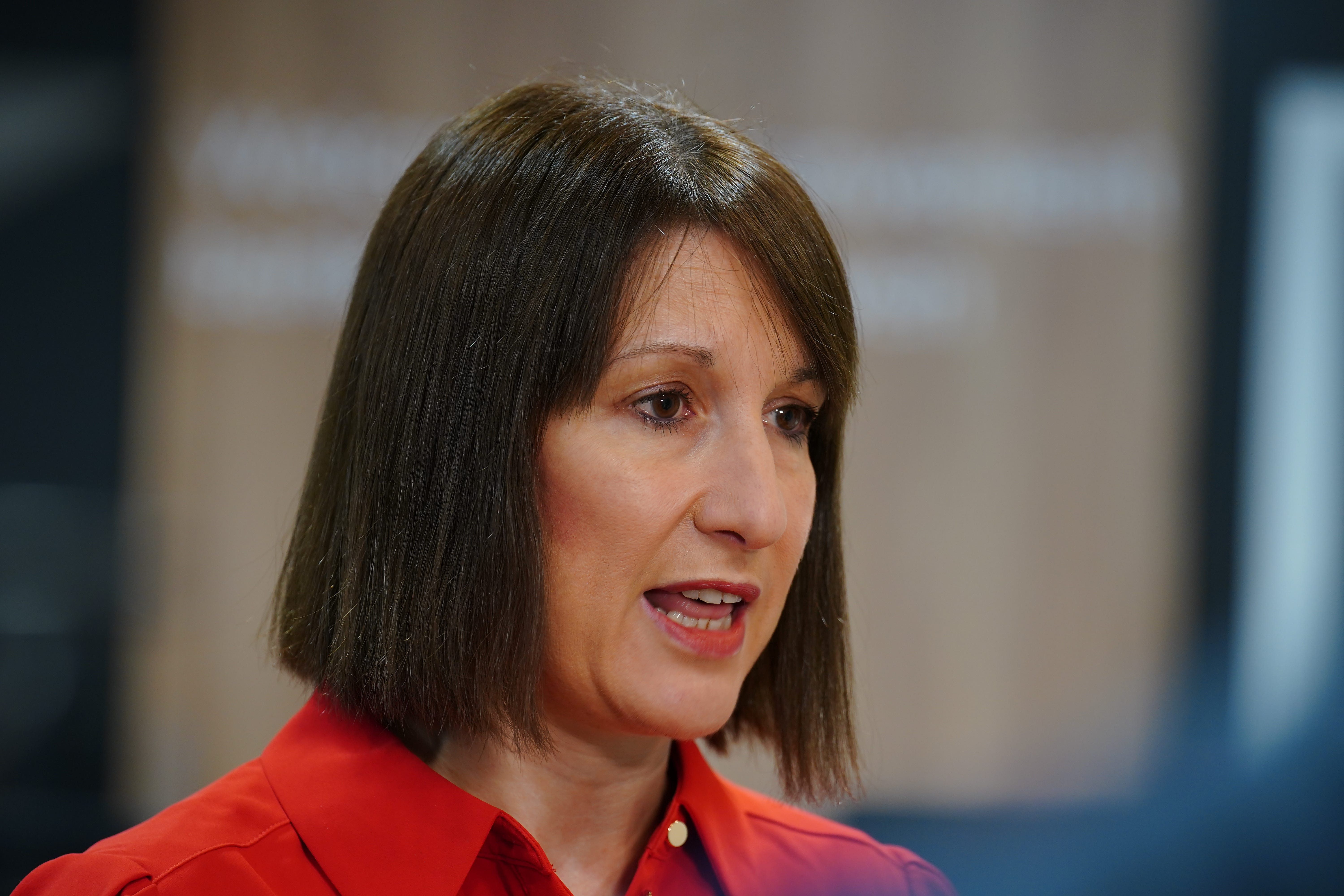
In a separate blow, a new report by the Office for Budget Responsibility (OBR) warned the policy may raise less than the Treasury hopes, with the £500m-a year-revenue forecast given a high uncertainty rating and likely to fall after seven years as families use tax planning to avoid the charge.
The changes mean that farms valued at £1m or more would be liable for 20 per cent inheritance tax.
The Treasury says that, with tax allowances, in reality, only farms worth £3m would be affected, just 28 per cent of family farms. But official Defra figures appear to suggest as many as 66 per cent could be hit.
The polling, which was conducted between December 13 and 17 2024, spoke to 2,011 UK adults.
NewsBeat
Captain Cook statue vandalised in Sydney ahead of Australia Day

Australian police are investigating after a statue of Captain James Cook was covered in red paint and disfigured, ahead of the Australia Day weekend.
It is the second time in 12 months that the statue in Sydney has been vandalised.
Australia Day is a national holiday that is held each year on 26 January – the anniversary of Britain’s First Fleet landing at Sydney Cove in 1788. Many Indigenous Australians say the date causes them pain.
The local council in Randwick – the suburb where the statue is located – described the vandalism as “a disservice to the community and a disservice to reconciliation”.
Councillor Carolyn Martin told Sydney radio station 2GB that the vandals had knocked off one hand and parts of the face and nose.
The statue – which was first unveiled in 1874 – was previously targeted in February last year, when it was covered with red paint and had parts of its sandstone damaged. Works to repair and restore it were completed a month later.
There are several Captain Cook statues across Australia, and others have also been vandalised on or around 26 January.
In 2024, one in Melbourne was cut down on the eve of the holiday, while its plinth was spray-painted with the words “the colony will fall”. Two years earlier the same statue had been splashed with red paint, while in 2018 it was graffitied with the words “no pride” and had an Aboriginal flag placed next to it.
NewsBeat
Councils ‘haemorrhaging funds’ as costs of housing homeless surge

Record levels of homelessness are placing unsustainable pressure on councils’ crumbling finances, an influential committee of MPs has warned as the annual cost of emergency accommodation rose by almost a third.
The booming use of temporary accommodation for homeless families by local authorities has led to a “crisis situation” that must be urgently dealt with across government, a report from the Public Accounts Committee has found.
Some 123,000 households in England are being housed in temporary accommodation, which can include hotels and B&Bs, the latest data from June 2024 showed. The cost to councils of providing this emergency accommodation has risen to £2.1bn for the financial year 2023/24, up from £1.6bn the year before, MPs found.
Sir Geoffrey Clifton-Brown, chair of the committee, said local authorities had been left trying “to save a sinking ship with little more than a leaky bucket”. He warned that councils were “haemorrhaging funds to cover the rising costs of housing families in temporary accommodation”.
The committee called on ministers to come up with a plan to bring down the number of people becoming homeless in the first place, reduce the cost of expensive temporary housing, and fund councils with multi-year commitments.

The number of households facing homelessness exceeded 320,000 between 2023-2024, the highest on record. The rise has been fuelled by a rise in rental costs, coupled with a failure of benefits and pay to keep up with the surging cost of living.
In a report published on Friday, MPs warned government that there was little money left for homelessness prevention, with local authorities focused on funding support for people who are already facing the streets.
MPs said it was “unacceptable” that B&Bs were being routinely used to house people and not as a last resort – warning that children were being put at risk by the precarious accommodation. Data from June 2024 showed that almost 6,000 homeless families with children were being housed in B&Bs, and almost 4,000 families had been there for longer than six weeks.
Due to a lack of affordable housing, councils are also struggling to house families in temporary accommodation in their local area. The number of households placed out of area has risen by a staggering 42 per cent from 2018/19 to 2023/24.
The cross-party group of MPs also said that Local Housing Allowance rates didn’t match rental costs. Some 45 per cent of households now face a shortfall between the housing allowance they receive and the rent they pay, the report found.
Sir Geoffrey Clifton-Brown, a Conservative MP and chair of the committee, said they were “deeply concerned by the number of people currently being housed in sub-standard, overpriced and at times, wholly inappropriate accommodation, sometimes a long way from their previous home.
“A lack of affordable housing, a focus on short-term solutions and no clear strategy to tackle this issue have left us with thousands of families in deeply troubling circumstances.”
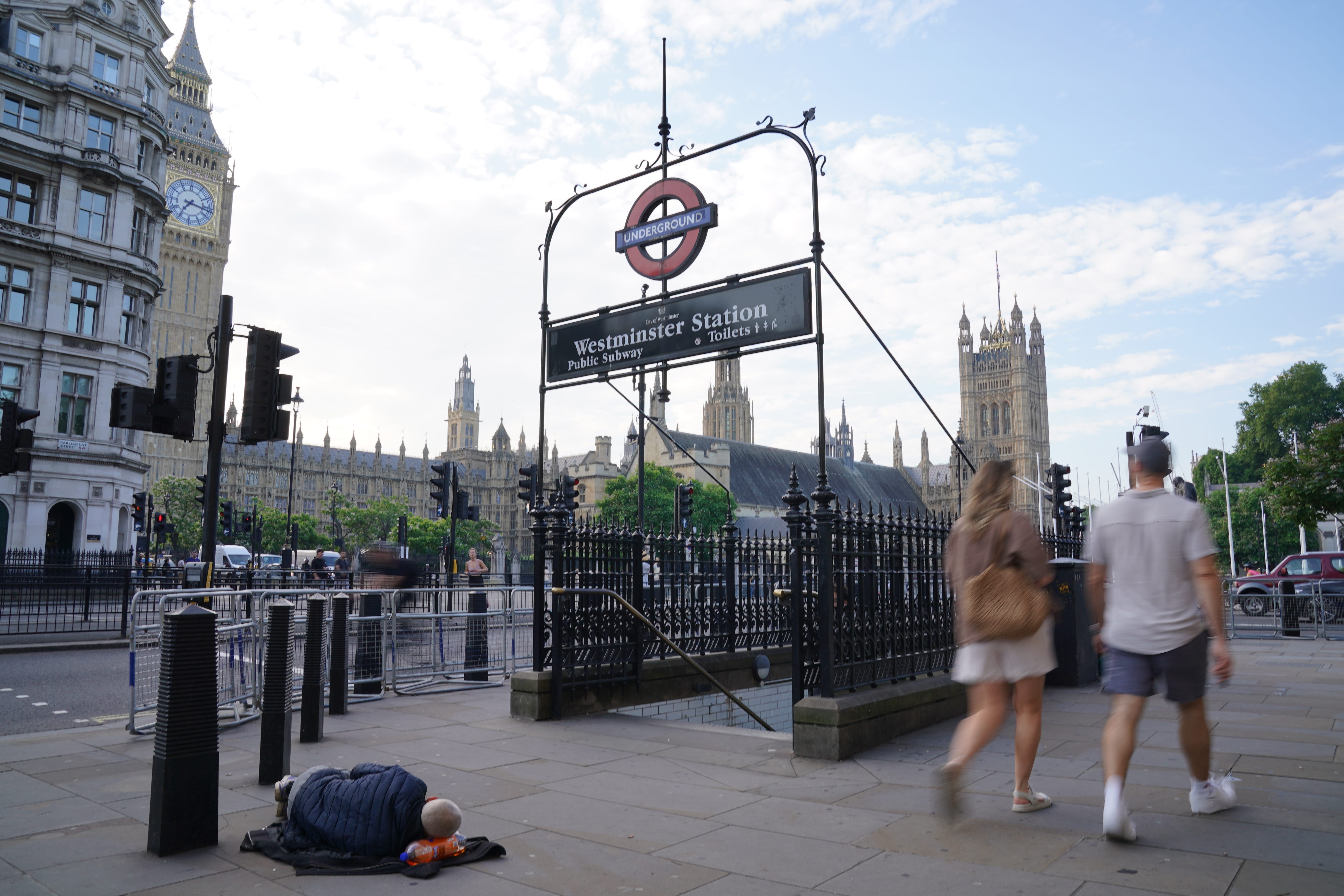
He added: “We are calling for an overarching strategy that addresses the need for better connectivity across government departments to tackle the root causes of this crisis. Without one, we fear this will remain an issue into which money is simply poured, without effectively tackling the blight of homelessness.”
Matt Downie, chief executive of Crisis, said: “Living costs and rent have been skyrocketing, and homelessness increasing. Local councils are stuck between a rock and a hard place, due to limited funds, and the impact on people facing homelessness has been catastrophic.”
Cllr Adam Hug, housing spokesperson for the Local Government Association, said: “Homelessness is one of the biggest and most urgent pressures facing local government. More and more people turn to their council for support and councils have little choice but to resort to costly temporary accommodation, leading local authorities to spend less on funding homelessness prevention.”
A government spokesperson said: “These figures are completely unacceptable and demonstrate the devastating homelessness crisis we have inherited.
“This is why we are taking urgent and decisive action to end homelessness for good, including committing £1bn in additional support for homelessness services and address the use of emergency accommodation.
“We’re talking the root causes of homelessness, committing in our Plan for Change to build 1.5 million new homes, which includes building the social and affordable homes this country needs, and are changing the law to abolish Section 21 ‘no fault’ evictions – immediately tackling one of the leading causes of homelessness.”
NewsBeat
Hair loss drug finasteride ‘biggest mistake of my life’
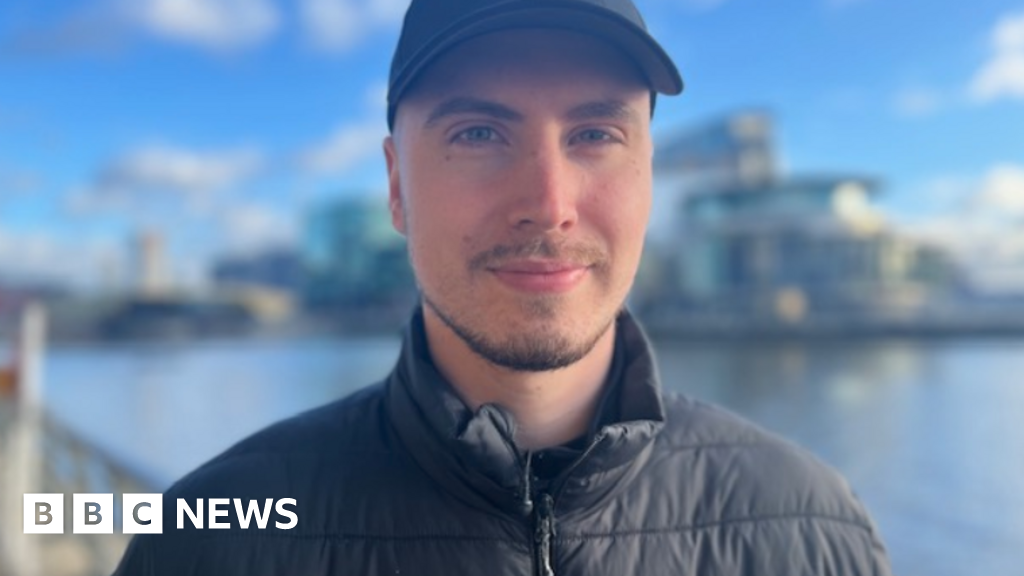
BBC News
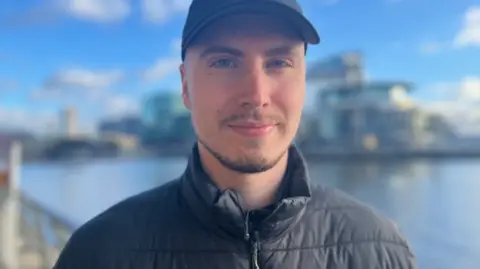 Kyle
KyleSome online sites are prescribing men a hair loss drug that has potentially risky side effects without consistent safety checks, the BBC has found.
The side effects of finasteride can include suicidal thoughts and impotence, yet some big brand companies will send the pills in the post without seeing or chatting with the customer.
Kyle, who is 26 and from Wakefield, regrets buying the pills online after filling out a ‘tick-box’ form.
He says his life has been turned upside down by an all too quick decision.
 BBC News
BBC NewsKyle started taking finasteride last spring, after it was recommended to him by a mate who was on it.
He says he did a bit of research beforehand, but buying it online was simple.
“I just typed it in on Google and it came up with all these online pharmacies,” Kyle says.
“It’s everywhere. It’s so easily accessible.”
The prescription pills arrived on his doorstep within a week of ordering them.
“I had no consultation with a doctor. No zoom meeting. I didn’t have to send any pictures to them or anything like that to actually make sure I did have male pattern baldness.
“I started it and, yeah – that was the biggest mistake of my life.”
Since taking the drug, Kyle says he’s been having problems with his sexual, mental and physical health – problems he had never experienced before and which have persisted since he stopped the medication.
“Life just feels grey. It’s, like, castrated my emotions,” Kyle says.
“It just stripped everything from me – all my personality and everything. I stopped going out with my mates, stopped playing football and started having all these issues.”
How finasteride works
Finasteride is one of the most common pills for hair loss, taken by tens of thousands of men in the UK. It is only available by private prescription.
It works by stopping testosterone turning into another hormone, called dihydrotestosterone (DHT), that can stop hair growing.
Kyle took it for about six weeks, but stopped after experiencing problems including suicidal thoughts.
 Kyle
KyleIn late April 2024 – just weeks after Kyle got his prescription – UK regulators took urgent action over finasteride, saying packs must contain a special safety alert card warning of the small risk of severe side effects including suicidal thoughts and sexual dysfunction.
After being contacted by other men like Kyle through Your Voice, Your BBC News, we asked a male colleague to buy finasteride from three leading online providers to see what the checks now involved.
Online prescriber ‘Hims’ mentioned the side effects.
Superdrug also offered the option to chat with a doctor – that cost extra.
Only Boots pharmacy asked for a photo of hair loss.
When some packs arrived, none contained the new patient alert card that drug makers were asked to add.
 BBC News, courtesy of Superdrug
BBC News, courtesy of SuperdrugThe Medicines and Healthcare products Regulatory agency says manufacturers have been given up to a year to comply, but it might take longer.
Boots, Hims and Superdrug say online finasteride customers are asked to confirm that they have read and understood the possible risks.
They say until the alert cards are “rolled out” and put in packs, users can read the long patient information leaftlet already included with the medicine to learn about side effects.
The Royal Pharmaceutical Society says online prescribing can be very useful for a lot of patients, particularly if they are too embarrassed to visit a doctor. But the checks must be robust.
James Davies, RPS director for England told BBC News: “It’s really important that regardless of whether it’s online or face to face, these thorough checks are taking place.
“That means that a full medical history is taken, there’s an opportunity to understand the medication that may be prescribed, the side effects, the risks and the benefits.”
He said sharing photos of the hair loss with the prescriber and having a video call to discuss all of the issues could be useful.
The British Association of Hair Restoration Surgery (BAHRS) believes patients shouldn’t get the drug just by filling out an online form.
Greg Williams, hair transplant surgeon and vice president of BAHRS, says although finsasteride is a good treatment for many, the small chance of serious side effects must be explained and closely monitored.
“There will be some patients who have risk factors that might make finasteride a risky prescription. I’m not saying it can’t be prescribed, but patients need to be appropriately counselled.”
Europe’s drug regulator is doing its own safety review of finasteride which could include a ban.
Nearly a year since first ordering the drug, Kyle says he deeply regrets taking finasteride.
“It’s just a little pill. You take it and don’t really think about what it can do to you,” he says.
“Every day I beat myself up saying like ‘You had a perfect life, you didn’t have to risk something over hair’.
“It was vain of me…but when you get insecure you do stupid things.
“If I were made aware of what it can do I never would have took it.”
NewsBeat
Where are the most and least affordable areas to buy a house?

House prices are continuing to grow and mortgage activity has been “surprisingly resilient” despite ongoing affordability challenges, according to a report from Britain’s biggest building society.
Nationwide also found that people working as cleaners, couriers, labourers and in customer service or caring professions could potentially see more than half their take-home pay swallowed up by their mortgage, based on a typical first-time buyer property.
UK housing affordability had seen a modest improvement over the past year, due to earnings growth marginally outpacing house price growth and a slight reduction in average borrowing costs, said Andrew Harvey, a senior economist at Nationwide Building Society.
But, he said, housing affordability remains “stretched” by longer-term standards.
Mr Harvey said: “A prospective buyer earning the average UK income and buying a typical first-time buyer property with a 20 per cent deposit would have a monthly mortgage payment equivalent to 36 per cent of their take-home pay – well above the long-run average of 30 per cent.
“Furthermore, house prices remain high relative to average earnings, with the first-time buyer house price-to-earnings ratio standing at 5.0 at the end of 2024, still far above the long-run average of 3.9.
“Consequently, the deposit hurdle remains high.”
He said the challenge of saving for a deposit has been made worse by record rent rises in recent years and the wider cost-of-living crisis.
In 2023-24, around 40 per cent of first-time buyers had some help raising a deposit, either in the form of a gift or loan from family or friends, or through an inheritance, the report said.
Mr Harvey added: “Despite these affordability challenges, mortgage market activity and house prices proved surprisingly resilient in 2024.
“Annual house price growth ended the year at 4.7 per cent, a marked improvement from the small declines seen at the start of 2024.
“The number of mortgage approvals returned to 2019 levels, despite typical mortgage rates being around three times higher. Perhaps even more remarkably, first-time buyers’ share of house purchase mortgages was actually higher in 2024 (54 per cent) than it was pre-pandemic (51 per cent).
“Looking ahead, providing the economy recovers steadily, as we expect, the underlying pace of housing market activity is likely to continue to strengthen gradually as affordability constraints ease through a combination of modestly lower interest rates and earnings outpacing house price growth.”

The report also looked at housing affordability for people in different professions and found mortgage payments relative to take-home pay are typically lowest for those in managerial and professional roles, where average earnings tend to be higher.
It found that mortgage payments on a typical first-time buyer property would swallow up around a quarter (25.6 per cent) of the take-home pay of managers, directors and senior officials.
However, for people in professional occupations generally, this would increase to 30.9 per cent.
Mortgage payments for those in skilled trades buying a typical first-time buyer property would account for 41.3 per cent of take-home pay, increasing to 43.0 per cent for plant and machine operatives.
For people in admin and secretarial roles it would be 47.2 per cent, for sales and customer service staff, these mortgage payments would represent 51.9 per cent of take-home pay, which is the same for people working in caring and leisure services.
For those working in elementary occupations, including construction and manufacturing labourers, cleaners and couriers, the proportion is 52.0 per cent.
Mr Harvey added that these are “benchmark measures” which use average earnings in each occupational group and the UK typical first-time buyer property price.
He said: “In practice, those in higher paid occupations may choose to buy more expensive properties.”
Mr Harvey added that house price-to-earnings ratios remain broadly similar to a year ago across the UK, with London continuing to have the highest ratio at 8.0 and Scotland the lowest at 3.0.
Nationwide also looked at the most and least affordable local authorities in UK nations and regions.
Here are the least affordable authorities per nation or region, as measured by the typical first-time buyer house price-to-earnings ratio (data is not available for Northern Ireland):
London, Kensington and Chelsea, 13.6
Outer South East, Chichester, 8.5
Outer Metropolitan, Three Rivers, 7.8
South West, Bath and North East Somerset, 7.8
East Anglia, Cambridge, 7.7
Yorkshire and the Humber, York, 6.3
West Midlands, Wychavon, 6.3
East Midlands, Derbyshire Dales, 6.3
North West, Trafford, 6.2
Wales, Cardiff, 5.6
Scotland, Edinburgh, 5.4
North, Westmorland and Furness, 4.4
Here are the most affordable authorities per nation or region, as measured by the typical first-time buyer house price-to-earnings ratio (data is not available for Northern Ireland):
Scotland, Aberdeen, 2.5
North West, Burnley, 2.8
North, Hartlepool, 2.8
Yorkshire and the Humber, North East Lincolnshire, 3.3
Wales, Blaenau Gwent, 3.5
West Midlands, Stoke-on-Trent, 3.7
East Midlands, Chesterfield, 4.1
East Anglia, Great Yarmouth, 4.5
Outer Metropolitan, Surrey Heath, 4.8
Outer South East, Tendring, 5.0
South West, Swindon, 5.3
London, Enfield, 6.2
NewsBeat
‘Bravery’ of Southport girls and calls for justice reform








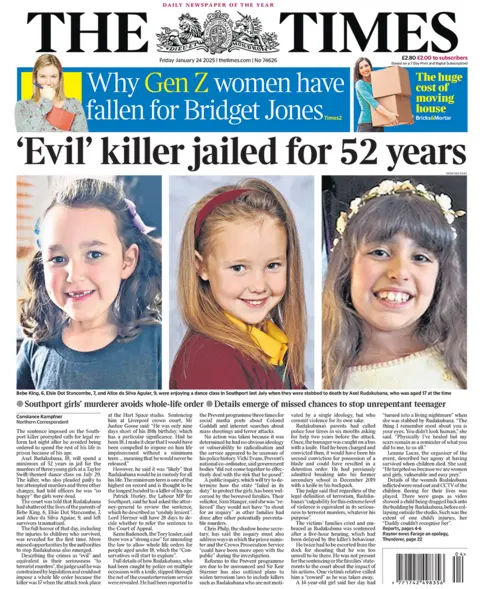




NewsBeat
Stay at home warnings in Scotland and NI over risk-to-life winds
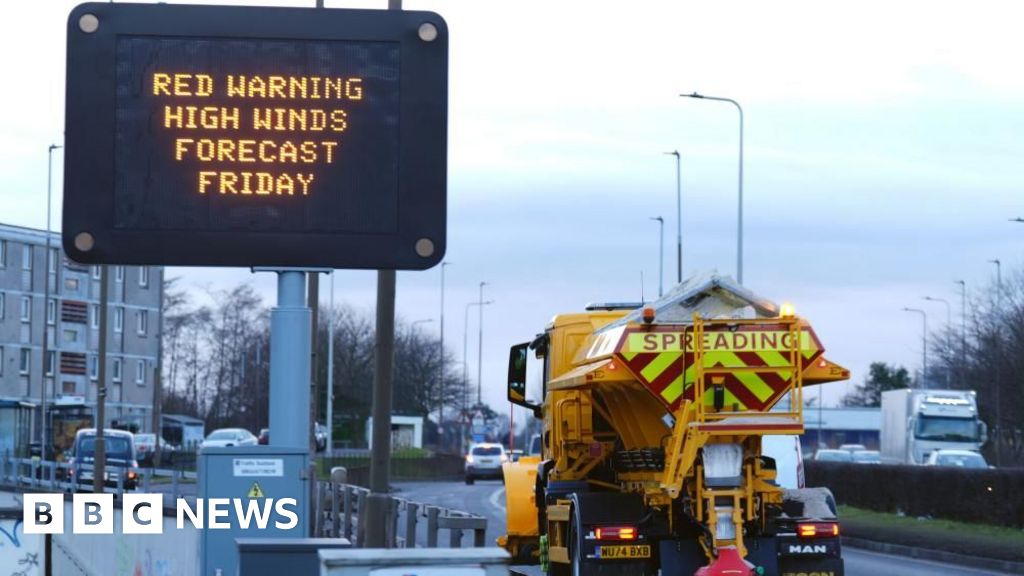
Millions of people have been urged to stay at home on Friday as Storm Éowyn is set to bring potentially life-threatening winds to the north and west of the UK.
Northern Ireland and parts of Scotland are set to experience the worst disruption, where the Met Office has issued red weather warnings which means there is a danger to life from winds gusting at up to 100mph.
Schools will be closed in Northern Ireland and much of central Scotland on Friday, while travel is also expected to be disrupted.
Away from the areas expected to be worst-hit by Storm Éowyn less severe amber and yellow warnings for both wind and rain have been issued, with 11 warnings in place for the UK on Friday and Saturday.
Red is the most serious weather warning the Met Office can issue, meaning dangerous weather is expected and people are urged to take action to keep themselves and others safe.
The red warning for the whole of Northern Ireland will be in force from 07:00 GMT to 14:00 on Friday, affecting the morning rush hour.
Bus and train services have been suspended in the country, while all schools have been advised to close.
In a message to customers, supermarket chain Tesco said all its shops in Northern Ireland would be closed on Friday – adding that home deliveries would be cancelled too.
The Irish Republic’s weather service Met Éireann has also issued severe red weather warnings amid the potential for “hurricane force winds” – with BBC Weather also warning it could be the storm of the century to hit the the country.
The storm is due to move east through Friday morning so a red warning is in place across Scotland’s central belt, including Glasgow and Edinburgh, from 10:00 to 17:00.
Schools in at least 20 local authorities – covering most of central Scotland – will be closed on Friday.
ScotRail has confirmed all rail services in Scotland will be suspended on Friday, adding that the closure was to ensure the safety of customers and staff.
Train operators Avanti, LNER, Lumo, CrossCountry, and Grand Central, TransPennine Express and Northern have also issued warnings not to travel in the north of England and north Wales on Friday.
The AA urged drivers travelling in red weather warning areas to consider whether a journey is necessary, and if not to postpone it.
Across the UK winds will rapidly increase from west to east on Friday morning into the afternoon with peak gusts of 80-90mph (129-145km/h).
There will likely be a large number of trees blown over with widespread disruption to travel with roads badly affected, and flights, trains and ferries will be subject to cancellations.
Power cuts are also likely, some of which could last for a number of days.
NewsBeat
New £9bn deal to build reactors for nuclear submarines will create 1,000 jobs, ministers say

Ministers have announced a new multi-billion pound deal for nuclear submarines they say will create 1,000 jobs and support 4,000 more, as Rachel Reeves scrambles to boost economic growth.
The agreement with Rolls-Royce to support the Royal Navy fleet, dubbed “Unity”, will also aid national security, the government said, days after the UK warned Russia ‘we see you’ as the Royal Navy tracked a Russian spy ship in the English Channel.
Defence secretary John Healey said the investment would “deliver a long-term boost” to British business and jobs.
The government suffered a blow on Thursday with an announcement by Sainsbury’s that it is cutting 3,000 jobs as it braces for a looming surge in costs, including higher taxes and wage bills, following Ms Reeves’s Budget.
Ms Reeves is facing a growing backlash to her plans, including to a hike in employers national insurance. She has also come under increasing pressure after recent figures showed a sluggish economy.

Last week the chancellor warned the rising cost of borrowing and falling value of the pound underlined the need for ministers to go “further and faster” in search of economic growth.
She is expected to use a speech next week to back a controversial third runway at Heathrow, despite deep division within her party over the environmental impact.
Asked about the airport decision while on the trip to the Swiss ski resort, she said that growth, as the government’s primary mission, trumped net zero considerations and was “obviously the most important thing”.
According to the government the new deal for submarines “streamlines previous contracts”, saving taxpayers more than £400 million over eight years.
Steve Carlier, the president of Rolls-Royce Submarines, said the long-term contract “enables us to invest in the right skills, equipment, and facilities to play our part in protecting UK interests at home and overseas.”
Mr Healy said the deal was also a “clear demonstration of our commitment to the UK’s nuclear deterrent, which is our ultimate insurance policy in a more dangerous world.”
The Ministry of Defence said the contract would deliver design, manufacture and support services to nuclear reactors to power the UK’s submarines.
Mr Healey will announce the agreement, worth approximately £9 billion, on a visit to the company’s nuclear production facility in Derby on Friday.
-

 Fashion8 years ago
Fashion8 years agoThese ’90s fashion trends are making a comeback in 2025
-

 Entertainment8 years ago
Entertainment8 years agoThe Season 9 ‘ Game of Thrones’ is here.
-

 Fashion8 years ago
Fashion8 years ago9 spring/summer 2025 fashion trends to know for next season
-

 Entertainment8 years ago
Entertainment8 years agoThe old and New Edition cast comes together to perform You’re Not My Kind of Girl.
-

 Sports8 years ago
Sports8 years agoEthical Hacker: “I’ll Show You Why Google Has Just Shut Down Their Quantum Chip”
-
Business8 years ago
Uber and Lyft are finally available in all of New York State
-
Entertainment8 years ago
Disney’s live-action Aladdin finally finds its stars
-
Sports8 years ago
Steph Curry finally got the contract he deserves from the Warriors
-
Entertainment8 years ago
Mod turns ‘Counter-Strike’ into a ‘Tekken’ clone with fighting chickens
-
Fashion8 years ago
Your comprehensive guide to this fall’s biggest trends



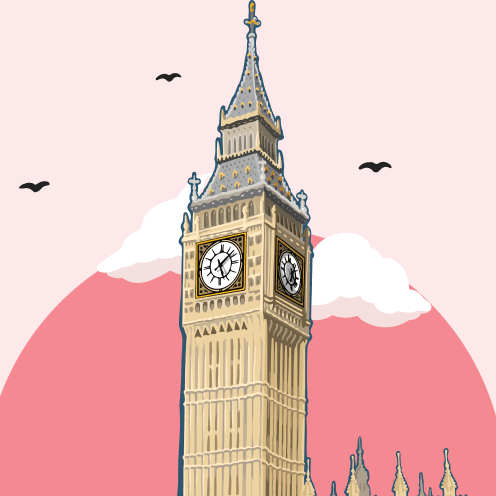




You must be logged in to post a comment Login